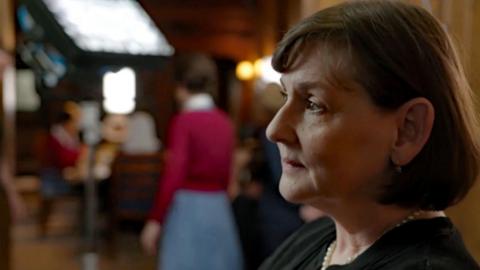Thomas manages to cram in tough storylines into a cosy 8pm, Sunday night slot, often shared with shows such as Antiques Roadshow.
There have only been two instances where she's been asked to change something in the show, which was initially set in 1957 and is about to hit the 1970s.
"One was for the haemorrhage machine," she recalls, describing a contraption which recreates post-birth blood loss.
"I think it's a unique piece of equipment to us.
"We were told the blood was too noisy on the lino [on the floor] - so that was literally about a sound effect."
The other was "a tussle" over the use of the word bastard, a dated and offensive way of describing a child born to unmarried parents.
Thomas says they had to do a bit of "creative cutting" to remove it.
